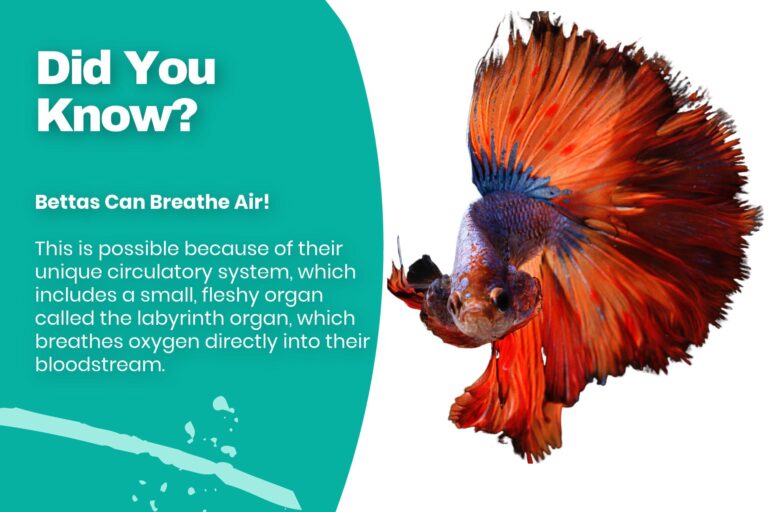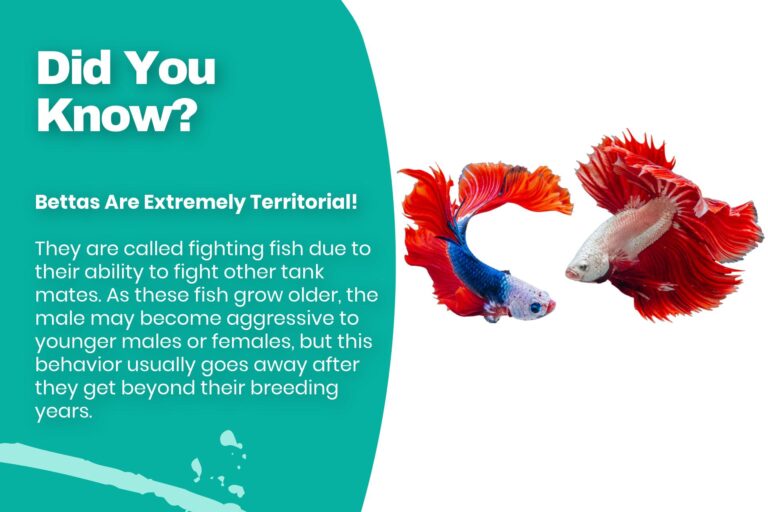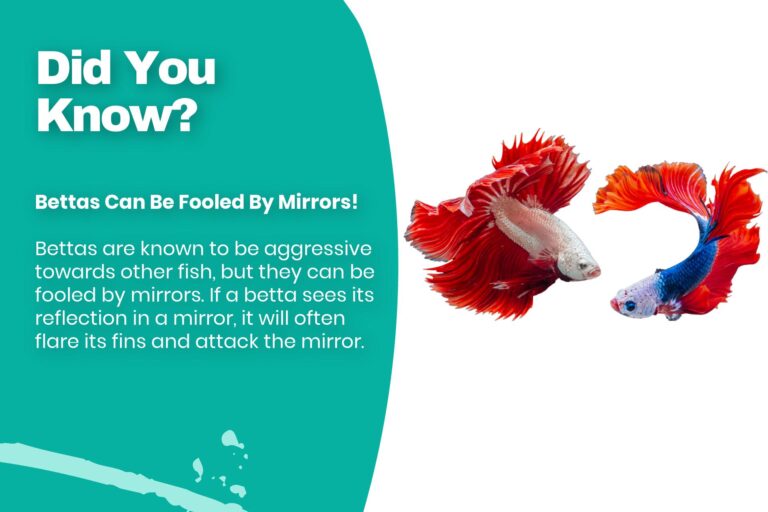Is Your Betta Fish Acting Erratic? Here Are The Things You Need To Know

This behavior is often caused by the environment they live in. If the water temperature is too cold, the betta fish may become lethargic or inactive.
It could also be a reaction to changes in the water parameters or chemistry, such as pH levels or chemical additives.
A lack of variety in diet can lead to boredom and cause them to act erratically or display aggression towards other fish.
Stress from overcrowding or too much human interaction can also add to erratic behavior in betta fish.
In order to ensure your fish remains healthy and happy, it is important to provide a suitable living environment for them with ideal water conditions, enough space to swim around and a varied diet.
Table of Contents
Quick Answer
Betta fish are pretty fish that can sometimes act in a strange way. This can be because they’re feeling bored, scared or sick. Sometimes, their water is too cold or has too many chemicals. It’s important to make sure they’re eating enough and have a nice environment to live in.
Betta fish that swim fast or change direction quickly might be too stressed, so it’s important to check if they’re happy or if they’re sick. You should make sure their home is clean, and they have enough room and toys to play with!
A Closer Look At The Behavior
A betta fish swimming erratically usually involves darting around the tank quickly, swimming in circles, and swimming close to the surface of the water.
A betta may also react erratically to certain stimuli, such as sudden movements or loud noises. They may quickly swim away from the source of their fear or start flaring.
Flaring is when they spread out their fins and flare up their gills, which looks like they are trying to appear bigger than they actually are.
Erratic behavior can be caused by a variety of things such as stress, boredom, illness, or just being startled by something unexpected.
It is important to monitor your betta and make sure that this type of behavior does not become too frequent and that it goes away after a short period of time.
If it persists, it could be a sign that your betta is not feeling well or is stressed out and needs some extra care and attention.
Is Acting Erratic A Worrisome Behavior For A Betta Fish
Betta fish are typically very active and energetic fish, but sometimes they can be seen acting erratically. This can be worrisome, as it could indicate a health issue.
Erratic behavior may also be caused by stress or boredom, as bettas need variety in their environments to stay healthy and happy.
If you notice your betta is acting erratic, it’s important to take action quickly to ensure its wellbeing. Check the water quality and temperature of the tank, as well as the diet your betta is receiving.
Try adding a few toys or decorations for stimulation if you think your betta is bored.
If the unusual behavior persists for more than a few days after making these changes, consult a veterinarian for help diagnosing any underlying health issues.
Common Causes Of Betta Fish Acting Erratic
Betta fish are known for their beautiful colors and calming presence. However, sometimes they can start to act erratically and become distressed. Common causes of this behavior can include:
Poor Water Quality
Poor water quality of your aquarium can have an adverse effect on betta fish, leading to erratic behavior.
Betta fish require clean and well-oxygenated water to stay healthy, but poor water quality can cause physical and mental stress.
Signs of poor water quality include changes in color or activity levels, as well as fin and tail rot. If poor water quality is left untreated, it can result in ammonia poisoning, which can be fatal for betta fish.
To maintain good water quality of your aquarium, owners should regularly change their tanks’ water, test the pH level of the tank’s water, and ensure the tank has adequate filtration.
It is also important to avoid overcrowding when housing multiple betta fish in the same tank. By taking these steps and keeping a close eye on your betta fish’s swimming patterns, you can help ensure they remain healthy and happy.
Inadequate Nutrition
Poor diet, even if it includes food, can cause your betta fish to become lethargic and unresponsive.
If left untreated, this lack of energy can lead to other behavioral problems such as aggression or erratic swimming.
Furthermore, inadequate nutrition can also affect their immune system and make them more susceptible to diseases and parasites.
To ensure your betta is healthy and happy, feed your fish a balanced diet that includes a variety of proteins, carbohydrates, vitamins and minerals from high-quality sources.
A good betta diet should include freeze-dried bloodworms, brine shrimp, pellets or flakes. Feeding them twice daily in small amounts is recommended so they don’t overfeed.
Additionally, make sure you are providing the right water temperature and quality for your betta fish so they can thrive in their environment.
Overcrowding
When they are kept in too small or overcrowded tanks, the fish become stressed and aggressive. This can result in fin-nipping, chasing, and other disruptive behavior.
Furthermore, a tank with so many fish can also increase the risk of diseases due to poor water quality and a lack of oxygen.
It’s essential that betta fish have plenty of space to swim and explore their environment, otherwise they may become overwhelmed by their surroundings and exhibit undesirable behaviors.
To prevent this from happening, it’s important to provide enough space for each fish in the tank so that they feel comfortable and secure at all times.
Additionally, good filtration and regular water changes are essential for keeping the water quality high and providing a healthy environment for your betta fish to thrive.
Sudden Changes In Environment
Sudden changes in environment can have an adverse effect on the behavior of betta fish.
These changes can be anything from a change in temperature, water pH level, or even a sudden introduction of light or sound.
All these factors can lead to erratic behavior in betta fish such as swimming erratically, hiding away and becoming aggressive.
It is important to monitor any sudden changes in the environment that could affect the well-being of your betta fish so you can take action to help them adjust quickly and safely.
If your betta begins acting differently after a change in environment, it is best to immediately make sure they are safe and comfortable by adjusting the environment back to its original state if possible.
With proper care and attention, your pet will soon return to its normal behavior.
To prevent erratic behaviors it is important to ensure a consistent environment with regular water quality testing and proper nutrition for your betta fish.
Final Thoughts
A betta fish acting erratically might be caused by a few different things. Most commonly, it could be due to environmental stressors like overcrowding or poor water quality.
It can also be a sign of illness or disease. If you think that your betta fish is exhibiting erratic behavior, the first step is to observe its environment carefully and make sure the water parameters are correct.
Additionally, it’s important to give your betta plenty of space to swim around and access hiding spots.
Finally, if the behavior continues despite taking these steps, it may be time to consult with a veterinarian for further evaluation and treatment.
Taking care of a betta fish may require some patience in order to figure out why your fish is acting this way, but there are steps you can take to help identify and address the problem so that your pet can enjoy a healthy life!






